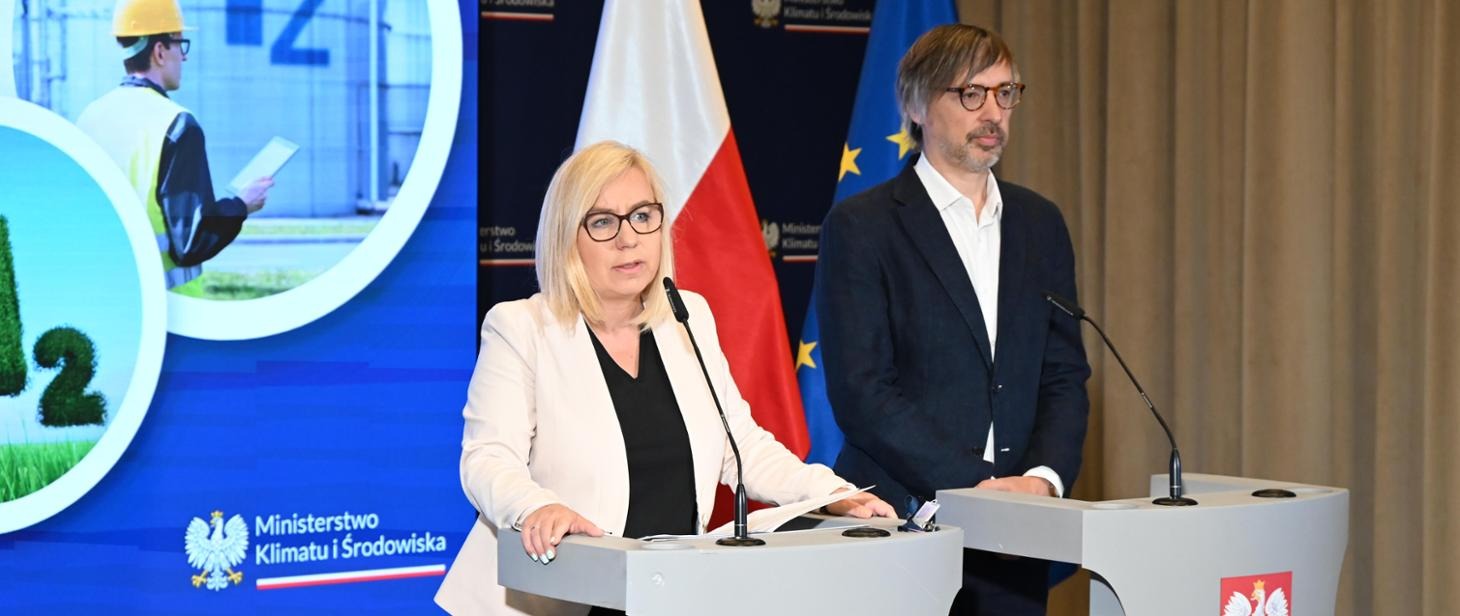The New Polish Law Aiming Accelerate the Hydrogen Economy

The Polish Ministry of Climate and Environment recently introduced a law which is expected to accelerate the hydrogen economy development in the country.
The conference took place in Warsaw. It was hosted by Minister Paulina Hennig-Kloska and Deputy Minister Krzysztof Bolesta.
The hydrogen economy could bring the added value of up to EUR 870 million
The Ministry regulates the development of the hydrogen economy. It intends to ensure the competitiveness of the domestic industry.
“Hydrogen will play a key role in achieving climate neutrality. We will prepare changes in the law to support the development of its economy. By 2040, the hydrogen economy could bring the added value of up to EUR 870 million,” as the Polish Ministry of Climate and Environment announced.
They believe hydrogen will replace gas as an energy carrier and can store energy. The Polish industry’s first large-scale hydrogen storage facility may be built in Kosakowo. Pomerania is expected to have a large energy surplus – hydrogen will help store it.
Currently, the Energy Law does not regulate hydrogen
According to current regulations, hydrogen is an “other type of flammable gas”. Thus it is subject to regulation only when supplied via the gas network. The Polish ministry believes it is necessary to introduce hydrogen into the Energy Law and regulate this market.
Currently, there’s investment uncertainty and limits. Lack of regulation slows down the implementation of hydrogen market investments.
The proposed Act defines individual types of hydrogen:
- low-emission hydrogen – can be produced from fossil fuels, provided that the production process results in appropriate emission reductions, e.g. hydrogen production with CO2 capture,
- renewable hydrogen – produced from renewable energy sources,
- renewable hydrogen of non-biological origin (RFNBO) – hydrogen produced in the electrolysis process following EU guidelines.
Operators – including the hydrogen transmission system, the hydrogen distribution system, and the hydrogen storage system operator – will appear on the hydrogen market. Their obligations will be regulated. The Act introduces a procedure for appointing operators by the President of the Energy Regulatory Office.
The rules for combining gas and hydrogen activities will be regulated
The rules for combining gas and hydrogen activities will be regulated, which is particularly important at the early stage of market formation.
Simplifications were introduced in the Construction Law, the Environmental Protection Law and the special act on preparing and implementing strategic investments in transmission networks.
The proposed solutions align with the so-called new gas package, i.e. the EU regulation and directive. It establishes common rules for the internal market in renewable gases, natural gas, and hydrogen. Adopting regulation changes also constitutes implementing a milestone in the National Reconstruction Plan.

